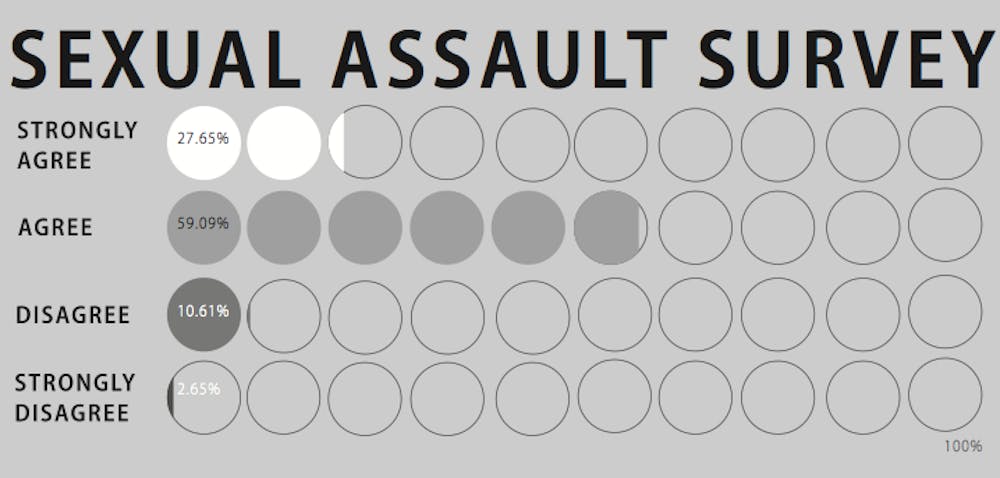By Julia Oller & Cassidy Grom | Echo
Fifty-one percent of the students who took the Campus Climate survey of fall 2015 knew where to locate Taylor's policies regarding sexual assault and harassment.
Senior Audra Reber said she is aware that such a policy exists but cannot remember reading it.

"I'm guessing the policy would be listed online somewhere," she said.
The survey, featuring questions related to Taylor's sexual assault and harassment awareness and safety measures, involved responses from 441 students, faculty and staff members. This was the first survey specifically addressing these topics at Taylor, according to Skip Trudeau, vice president of student development.
Trudeau explained that the Campus Climate survey is part of a larger initiative to ensure that Taylor complies with federal Title IX policies. Passed in 1972, one section of Title IX states that educational institutions must not discriminate based on sex if they want to receive federal funds.
In 2011, the Department of Education's Office of Civil Rights issued the "Dear Colleague" letter, which provided additional guidelines for enforcing Title IX adherence. The letter suggested that schools conduct an annual survey to better understand the needs of their student population.
"When they say 'suggestion,' that's a suggestion that carries a lot of weight," Trudeau said. "If the Department of Education suggests (something), you do it."
Even before they conducted the survey, the administration took strides to better educate campus leaders about the policies and procedures. Returning PAs noticed that Title IX issues were covered more in-depth during training for the 2015-16 school year.
Junior Tia Etter, a second-year PA in English Hall, said she doesn't remember much about the training for the 2014-15 school year, but this year she said the organizers talked extensively about Title IX policy and procedure. PAs attended a breakout group dedicated to Title IX and some practiced scenarios involving sexual harassment cases during a "Behind Closed Doors" session.
"I was very impressed with training (this) year," Etter said. "I wish more people could go through the training program."
Trudeau hopes to inform more students about their Title IX rights and responsibilities. Before students can register for their Spring 2017 classes, they must check a box confirming they have read the Taylor University Sexual Assault and Violence Policy, which can currently be found in the student handbook or by Googling the title.
Later this month, Taylor will host a Title IX training seminar for Title IX coordinators and deputy coordinators, who handle investigations of alleged Title IX breaches at Taylor. Trudeau, the Title IX coordinator at Taylor, said the university has conducted four investigations this year, all of which were resolved within Taylor.
A report only moves from an internal investigation to a legal procedure if the complainant chooses to take their complaint to court. There have not been any such proceedings in the last ten years, according to the Department of Education's Office for Civil Rights.
Trudeau said the university plans to expand its own definition of "sexual misconduct" to encompass all sex, whether consensual or nonconsensual, so the number of internal reports and investigations may rise.
"Sexual misconduct would be consensual relationships between men and women that go beyond our lifestyle covenants," Trudeau said.
For now, a new Title IX policy manual, which is currently in progress, will include consent and amnesty policies for the first time. Trudeau said the policy committee researched Messiah, Gordon and Wheaton's policies in preparation for the final draft.
Trudeau said all of the changes were intended to empower the complainants to make informed decisions and to keep the Taylor community safe.
"Ultimately this is all about empowering the person making the complaint, whether they decide to press charges or not," Trudeau said. If you or another member of the Taylor community has experienced sexual assault or harassment, tell a PA, hall director or member of the counseling center to receive guidance.





